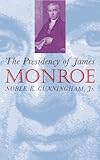

Health and Medical History of President
James Monroe
President #5: 1817-1825
Lived 1758-1831
Lived 1758-1831
Health and Medical History of President
James Monroe
President #5: 1817-1825
Lived 1758-1831
Lived 1758-1831
↓


 Lived 1758-1831
2023
1776
Lived 1758-1831
2023
1776
 Revolutionary War
Revolutionary War
1776-1783
 War of 1812
War of 1812
1812-1815
 Mexican-American War
Mexican-American War
1846-1848
 Civil War
Civil War
1861-1865
 Spanish-American War
Spanish-American War
1898-1899
 World War 1
World War 1
1917-1918
 World War 2
World War 2
1941-1945
 Korean War
Korean War
1950-1953
 Viet Nam War
Viet Nam War
1964-1975
 Desert Storm
Desert Storm
1990-1991
 Bush's Wars
Bush's Wars
2001-2021
1776-1783
1812-1815
1846-1848
1861-1865
1898-1899
1917-1918
1941-1945
1950-1953
1964-1975
1990-1991
2001-2021

Maladies & Conditions
· tall and broad · gunshot wound · recurrent malaria · unknown · fever · seizure · general decline · wrist injury · ?tuberculosis
Maladies and Conditions
At age 18 he was "a little over 6 feet tall, with broad shoulders and a massive, raw-boned
frame."
1a
At the Battle of Trenton in 1776, a bullet grazed the left side of Monroe's chest, then hit
his shoulder and injured the axillary artery (the major artery bringing blood to the arm).
The artery bled profusely. Monroe's life was probably saved by the doctor who stopped the bleeding
by sticking his index finger into the wound and applying pressure to the artery. Surgeons later
attempted to remove the bullet, but could not find it. Monroe recovered from the wound in 11
weeks, but carried the bullet in his shoulder the rest of his life.
1b
Contracted malaria while visiting a swampy are of the Mississippi River in 1785, and became
very ill. He had several episodes of fever later in life, which were probably flare-ups of
malaria.
1c
In March 1815, Monroe developed a prolonged illness of unknown type. It was apparently due
to the strain of his duties, which included both Secretary of State and Secretary of War during
the War of 1812 (which lasted until early 1815). His health began improving in the summer of
1815, after he relinquished his responsibilities in the War Department. His appearance improved
more slowly.
1c
President Monroe was bedridden with a fever, probably malaria, in early 1818. About this time,
a letter from General
Andrew Jackson
arrived at the White House, asked for permission to capture Florida for the United States.
Jackson ultimately did so, but Monroe later claimed no such permission had ever been given.
Jackson disagreed. A "massive misunderstanding" had somehow occurred. In fact, Monroe
may never have been aware of the letter or its contents.
1d
Monroe had a seizure in August 1825. It was so severe that he was thought to be near death.
He recovered, but the cause was never discovered. Possible causes include mushroom poisoning,
a stroke, or cerebral malaria.
1e
When Monroe left the Presidency, he was exhausted and looked much older than his 67 years.
1e
He fell off his horse in 1829 and injured his right wrist. He was unable to keep up with his
correspondence for several weeks.
1e
Monroe developed a chronic lung illness in late 1830. In April 1831 he wrote: "My state
of health continues, consisting of a cough which annoys me night and day accompanied by considerable
expectoration." No specific diagnosis was made, although his doctor recommended a rest
at a tuberculosis hospital. Bumgarner writes
1f:
It is known that the illness lasted for several months and involved his lungs progressively. He had a harassing, exhausting cough, and suffered from fever and severe night sweats. His cough was productive of much mucous and at times gushes of blood. As the disease [progressed], his breathing became more difficult. The clinical picture is highly suggestive but is not diagnostic of pulmonary tuberculosis.Comment: Bumgarner should know... he was himself long afflicted with pulmonary tuberculosis after his release from a Japanese POW camp.
Doctors
During Presidency
After Presidency
Resources
Cited Sources
- Bumgarner, John R. The Health of the Presidents: The 41 United States Presidents Through 1993 from a Physician's Point of View. Jefferson, NC: MacFarland & Company, 1994.
 a p.32 b pp.32-33 c p.33 d pp.33-34 e p.34 f p.35
a p.32 b pp.32-33 c p.33 d pp.33-34 e p.34 f p.35Comment: Devotes one chapter to each President, through Clinton. Written for the layperson, well-referenced, with areas of speculation clearly identified, Dr. Zebra depends heavily on this book. Dr. Bumgarner survived the Bataan Death March and has written an unforgettable book casting a physician's eye on that experience.
Other Sources
George Washington · John Adams · Thomas Jefferson · James Madison · James Monroe · John Q. Adams · Andrew Jackson · Martin van Buren · William Harrison · John Tyler · James Polk · Zachary Taylor · Millard Fillmore · Franklin Pierce · James Buchanan · Abraham Lincoln · Andrew Johnson · Ulysses Grant · Rutherford Hayes · James Garfield · Chester Arthur · Grover Cleveland · Benjamin Harrison · Grover Cleveland · William McKinley · Theodore Roosevelt · William Taft · Woodrow Wilson · Warren Harding · Calvin Coolidge · Herbert Hoover · Franklin Roosevelt · Harry Truman · Dwight Eisenhower · John Kennedy · Lyndon Johnson · Richard Nixon · Gerald Ford · James Carter · Ronald Reagan · George Bush · William Clinton · George W. Bush · Barack Obama · Donald Trump · Joseph Biden











